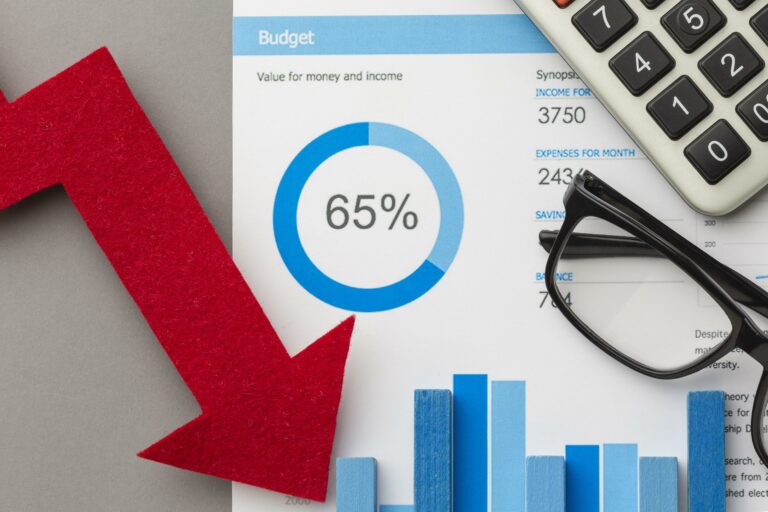
If you’re used to making money transfers or traveling internationally, you’ve probably encountered the term ‘exchange rate.‘ In addition to factors like GDP and inflation, the exchange rate is one of the most important indicators of a country’s economic health. It plays a vital role in the level of trade in a country, which is essential for most free-market economies around the world. For this reason, exchange rates are among the most monitored, analyzed, and manipulated economic measures by governments. So, what exactly is the exchange rate? What should you know about it before planning a trip abroad? Which money transfer service offers the best exchange rate? In this article, we answer all the questions you might have about the exchange rate.
I - What is an exchange rate?
An exchange rate is the value at which two currencies are exchanged for one another. In other words, it is the rate or value at which one currency can buy another currency. For example, if the exchange rate between the euro (EUR) and the CFA franc (XOF) is 657 CFA francs for one euro, then one euro can be exchanged for 657 CFA francs in the foreign exchange markets. In other words, you will get 657 CFA francs for each euro you exchange. The exchange rate is important because it determines the value of goods and services between two or more nations. It paves the way for international trade by signaling the market on the value of each good.
For example, without exchange rates, the United States would not know how much 1 dollar (USD) is worth to someone in China. They would also not know how many goods or services they could purchase. Countries like the United States and those in the eurozone have strong currencies. Thus, if a country has a higher currency value, it means that its imports are cheaper and its exports are more expensive for other countries to buy. Lastly, these rates can be either floating or fixed.
II - Types of exchange rates
There are two types of exchange rates: floating and fixed. Floating exchange rates change constantly, while fixed exchange rates change rarely.
A – Floating Exchange Rate Regime
Most exchange rates are determined by the foreign exchange market, or ‘forex.’ These rates are called flexible exchange rates. For this reason, exchange rates fluctuate at every moment. Prices change constantly, as with the US dollar, the Canadian dollar, the British pound, the Japanese yen, or the Moroccan dirham. These countries use flexible exchange rates. The government and central bank do not actively intervene to maintain a fixed exchange rate. Their policies may influence rates in the long term, but for most countries, the government can only influence, not regulate, exchange rates.
B – Fixed Exchange Rate Regime
Other currencies, like the Comorian franc (KMF), change rarely. This is because these countries use fixed exchange rates that only change when the government decides. These rates are typically pegged to the US dollar or the euro. Their central banks have enough money in their foreign exchange reserves to control the value of their currency. To maintain the fixed exchange rate, the central bank holds US dollars or euros. If the value of the local currency falls, the bank sells its dollars or euros for the local currency. This reduces the supply in the market, increasing the value of its currency. It also increases the supply of dollars or euros, causing their value to decrease. If demand for its currency rises, it does the opposite.
III - How to read and calculate exchange rates?
Exchange rates are important for travelers and international investors. Nowadays, it’s quite easy to find exchange rate quotes, but you always need to know how to read them and perform calculations based on them. If you’re traveling, you can find exchange rates displayed at airports, local banks, or by researching online if needed. Calculating exchange rates may seem straightforward at first, but it can be confusing if you don’t remember basic school math rules. Converting 100 euros into foreign currency while traveling is quite simple.
For example: Suppose the EUR/USD exchange rate is 1.20 and you want to convert 100 euros into US dollars. Simply divide 100 euros by 1.20. The result is the amount in US dollars: $83.33. To convert US dollars into euros, you reverse this process: multiply the amount in US dollars by 1.20 to get the amount in euros.
IV - Factors that impact exchange rates
Many factors determine exchange rates. Many of these factors are related to trade relationships between two countries. Additionally, the demand for a country’s currency depends on what is happening in that country.
Inflation: Generally, a country with a consistently lower inflation rate will show an increasing monetary value as its purchasing power grows relative to other currencies. During the latter half of the 20th century, countries with low inflation included Japan, Germany, and Switzerland, while the US and Canada only achieved low inflation much later. Countries with higher inflation rates typically see a depreciation of their currency relative to the currencies of their trading partners. This is usually accompanied by higher interest rates as well.
Interest Rates: The interest rate set by a country’s central bank is an important factor. Higher interest rates offer lenders in an economy a higher return compared to other countries. Therefore, higher interest rates attract foreign capital and lead to an increase in the exchange rate. However, the impact of higher interest rates is mitigated if inflation in the country is much higher than in other countries or if additional factors contribute to a decline in the currency. The inverse relationship exists for lower interest rates; that is, lower interest rates tend to decrease exchange rates.
Money Supply: Another important factor is the money supply created by the country’s central bank. If the government prints too much money, there is more money than goods available. Currency holders will drive up the prices of goods and services, creating inflation. If too much money is printed, it can lead to hyperinflation. Some cash holders may invest abroad where there is no inflation, but they will find less demand for their currency due to its excess supply in the market. This is why inflation can decrease the value of a currency.
Economic Growth: Foreign investors inevitably seek stable and economically strong countries in which to invest their capital. A country with such positive attributes will attract investment funds away from other countries perceived as having higher political and economic risks. Political unrest, for example, can lead to a loss of confidence in a currency and a movement of capital towards the currencies of more stable countries.
V - The impact of exchange rates
If you are traveling abroad to a country that uses a different currency, you may need to keep an eye on exchange rates. When the euro is strong, you can buy more foreign currency and enjoy a more affordable trip. If the euro is weak, your trip will cost more because you won’t be able to buy as much foreign currency. Since exchange rates fluctuate, you might find that the cost of your trip has changed since you started planning it. The same applies to money transfers. The exchange rate affects the amount your recipient receives, which is why it’s important to choose the right time to make a transaction when the amount is significant and, most importantly, to select the best service for more cost-effective transfers.
Transfergratis, for the best exchange rates.
The advantage of using Transfergratis for your money transfers from Canada to Africa is that we constantly adjust our exchange rates. We keep a close eye on global market changes to ensure you get the best value for your money. Forget about your currency converter! We compare rates so you don’t have to, and the best part is that your transfers are completely free! Download the app, sign up in a few simple steps, and start sending money today, free of charge and at the current rate.
In conclusion, the exchange rate is a key element of the global economy that influences not only international trade but also the daily lives of individuals and businesses. Understanding how it works, the factors that affect it, and the mechanisms through which it fluctuates is essential for navigating today’s globalized world. Whether you are an investor, a traveler, a migrant worker, or simply curious, grasping the subtleties of exchange rates will help you better anticipate economic impacts and make more informed decisions.
Feel free to share this article with your network and check out our blog to learn everything about managing your finances.
sources :
ABC économie
La finance pour tous







